Since there is now a unmanageable number of different Matcha teas on the market, we would like to give you a short guide how to separate the wheat from the chaff and find the one that suits you best. right matcha tea find.
We explain why there are such extreme price differences, which factors have the greatest influence on tea quality and which criteria a matcha must meet in order to be suitable for purchase.

Price differences - Why are there such price ranges for matcha?
The price ranges for matcha are enormous. You can find tea that costs 10 cents per gram, but you can also easily buy matcha that costs €2 per gram and more. But how can such price differences be explained? It has to do with a whole range of factors, although four main factors can be distinguished: Origin, Cultivation, Harvest and processing.
The best matcha teas come exclusively from Japan. Only here are the right methods used and enough experience is available to cultivate really good teas. Cheap tea, on the other hand, often comes from China. Here, less emphasis is usually placed on quality than on quantity. This is most strongly reflected in the cultivation.
Does a good tea need a lot of time and a long shading phaseto develop the fine aromas, cheaper, lower-quality tea is hardly shaded at all. There are also clear differences between high-priced and low-priced teas when it comes to harvesting and subsequent processing. Original Japanese matcha is harvested by hand, carefully sorted and ground gently and slowly on granite stone mills. This is the only way for the tea to fine texture and retains a large part of its ingredients. Mass-produced tea from China, on the other hand, is harvested and processed by machine in large, unselected quantities. This means that not only the best and most tender leaves find their way into the tea, but also a large part of the plant.
Further processing is not very gentle in order to reduce costs. The raw tea is industrially ground in large quantities and partly burnt by the intense frictional heat of the high-performance mills. You can clearly see, smell and taste this in the finished product. Is the gently, traditionally and lovingly produced Japanese Matcha extremely fine, fresh, radiant green and aromaticcheap tea has none of these characteristics. Due to industrial mass production, the tea is yellowish to brown, tastes bitter and slightly sour and has a sandy texture.
For such an inferior product, even 10 cents per gram would be too much to ask. Please keep your hands off it. You can find more information on the differences between Japanese and Chinese matcha and their price differences here in the blog post: Matcha price differences.

Quality - What are the different grades and what is a fair price?
The quality grades are similar to the wide price ranges for matcha tea. It is not possible to differentiate between good and bad, like between black and white, but must, equivalent to an infinite number of shades of gray, many quality grades differentiate. It is extremely difficult to differentiate between teas according to terminology, as the names for the individual teas are now used in such an inflationary way that they lose all meaning.
What does premium, super premium, supreme or ceremonial when every €10 drugstore matcha is labeled as such? Very little to nothing at all. That's why we want to dispense with these terms in this article and focus on the objective quality characteristics. We have explained what influences quality and therefore price in the previous section. But how exactly are the individual qualities determined independently of knowledge about origin, cultivation, harvesting and processing? Quite simply with our senses.

Because the quality of matcha is reflected in its colorits odor, its taste and its texture. Good matcha is bright to jade green, extremely finely ground, characterized by floral, fruity and nutty aromas and tastes smooth, sweet with complex and restrained notes.
The mouthfeel is similar to an espresso or a cappuccino creamy and full. Bad matcha, on the other hand, is yellowish to brownish, smells uninteresting to chemical and tastes bitter and slightly sour. The texture is coarser than that of good matcha, resulting in a dusty to sandy and watery mouthfeel. You can find out how to determine the quality in detail in the blog post Matcha tea qualities and differences.
Those were the descriptions for black and white. Most matcha is now somewhere between these two worlds. Which quality you choose depends, of course, on what you need the tea for. Are you looking for matcha for pure enjoyment and for special momentswhich may be prepared as koicha (thick, creamy tea)? Then you need the best qualities that cost at least €1 per gram.
Are you looking for a tea for the daily usewhich should also taste good but is drunk in larger quantities? Then we are in a price range between €0.60 and €1 per gram. Cheaper teas can also be used for mixed drinks, cooking or baking. These taste more tart and bitter than the high-priced powders, but their more intense flavor makes them suitable for culinary use ( our Basic Line Matcha is perfect for these special requirements in the kitchen).
Organic vs. conventional - what are the differences?
It is often said that you should only drink certified organic matcha tea. This is because only with organic Matcha can you be sure that the tea is really organic. free from pesticides and not radioactive contaminated. After Fukushima at the latest, only an organic seal can guarantee a safe product. But is that true? Is only organic matcha good matcha?
If we are talking about Japanese teas, then that is true not so. In Japan, the requirements for agricultural production are higher than in any other country in the world. This applies not only to the limits for radioactive contamination, but also to the use of banned, harmful pesticides.
In this context, the organic seal does not mean that there are stricter requirements or limits in terms of radiation or pesticide exposure. In the case of teas from Japan, it is rather the fertilizer used that is decisive for a possible organic certification. This must meet certain requirements so that the subsequent food can also be labeled as "organic". So even with conventionally grown matcha from Japan, you can be sure that it meets the highest standards and is not harmful to your health.
However, this does not always apply to teas from China. The regulations here are much more lax than in Japan, which is why some toxic pesticides may be used. You should therefore always look for an organic label on products from China.

Drugstore, supermarket, specialist shop or internet - finding the right supplier
As the demand for matcha powder has risen steadily in recent years, the range and number of suppliers has also increased. A few years ago, matcha could only be found in selected specialist stores or on the internet, but today the tea can be bought in every drugstore and supermarket.
The latter in particular are characterized by low prices. Here you can find matcha at prices between €10 and €20. There are now also countless suppliers on the internet, especially on large marketplaces such as Amazon, who sell the green powder at record-breaking prices. lowest prices prices. However, as we have already explained above, good matcha has a certain price and you should therefore be wary of offers such as these very careful be very careful.
In addition, you often do not receive any further information about the products. It is not clear which region they come from, nor how they were grown and processed. You are blindly reliant on empty marketing promises from retailers who have usually not looked into the product themselves and blindly purchase the products from wholesalers.
Therefore, when choosing a suitable supplier, you should always make sure that all the important information about the products is available. transparent and whether the price is in a reasonable proportion to the promised quality. Because here at the latest you will notice that a Super Premium Organic Matcha as offered by the drugstore should cost more than €11.90. Of course, the price only serves as an initial guide and not automatically as a seal of quality.
Therefore, you will not be able to avoid testing different suppliers and comparing different teas with each other. You can often tell from the information provided and the transparency of the supplier how trustworthy they are and how much they deal with the topic.
Conclusion - What should I look out for when buying?
As you can see, you should pay attention to a few things if you want to buy a good matcha tea. But you also have to none science out of it; we'll take care of that ;) Just make sure that the tea comes from Japan, is not too cheap, has all the important information transparent provided in a transparent manner and you good feeling with the supplier. You should avoid offers from drugstores or supermarkets altogether. Then simply compare several retailers and teas and find the supplier you trust. Have fun tasting! Click here for our organic teas.



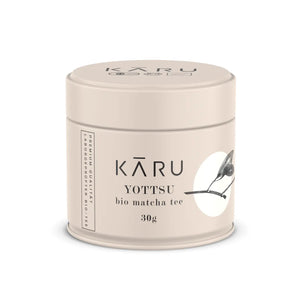
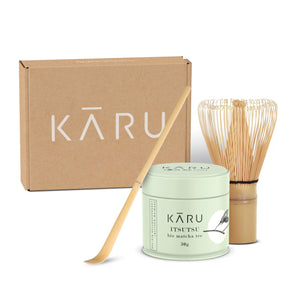
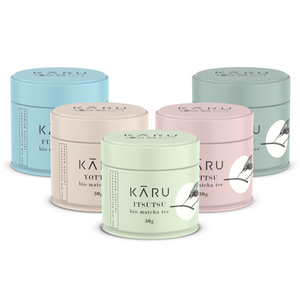


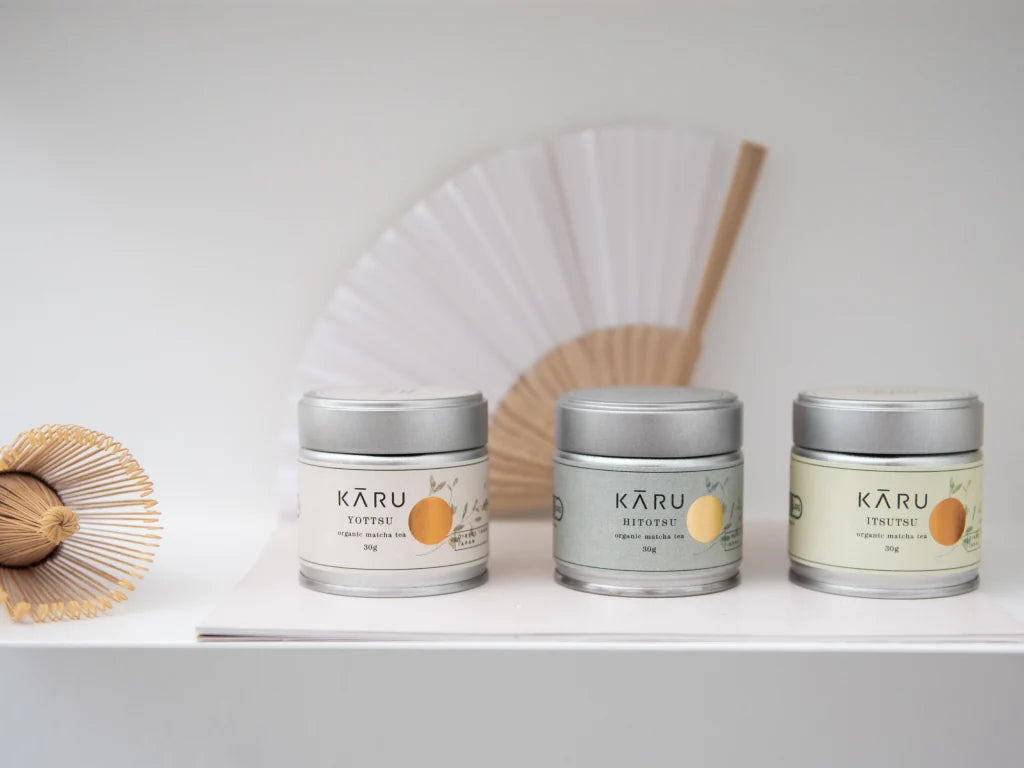


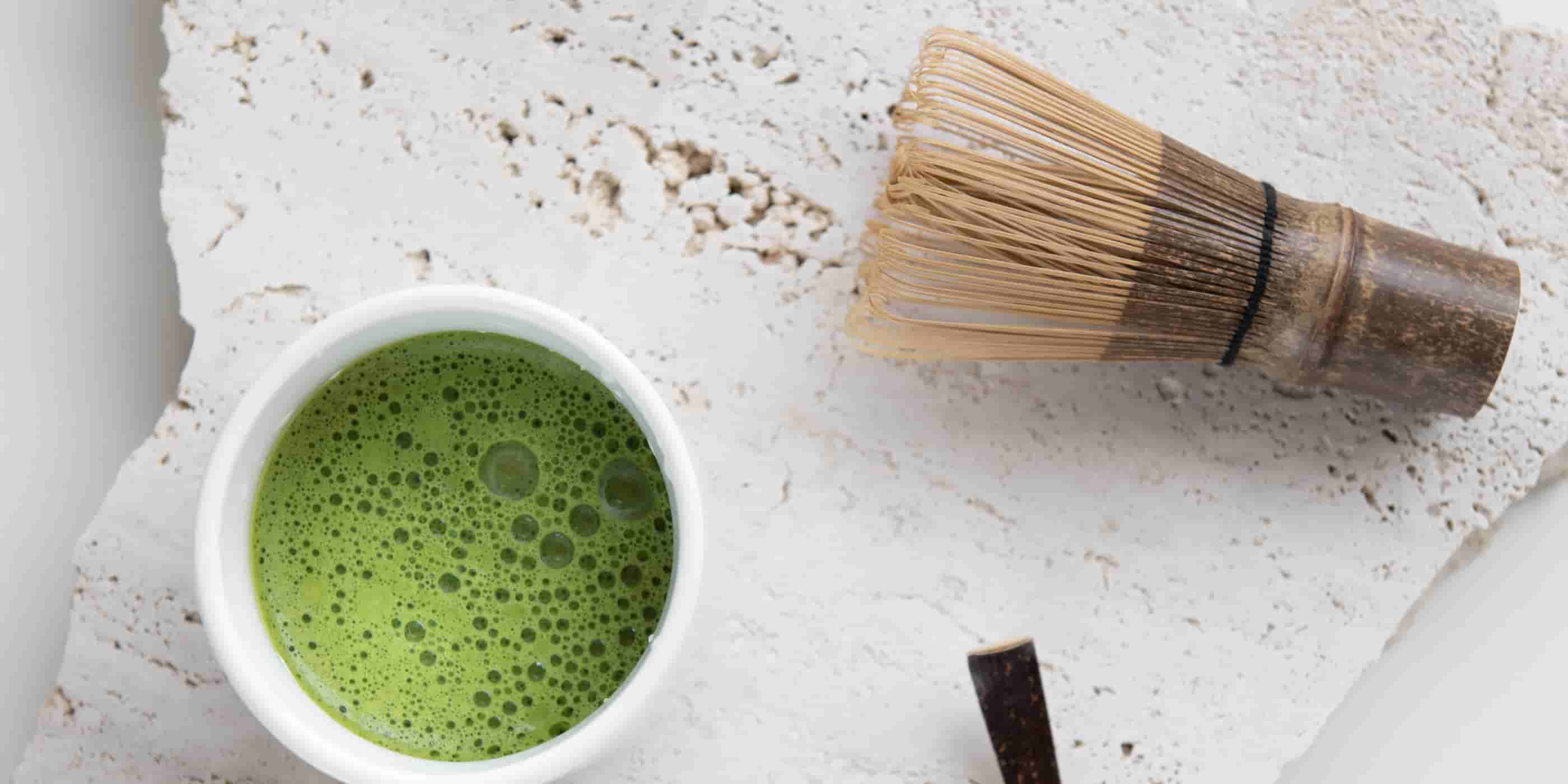
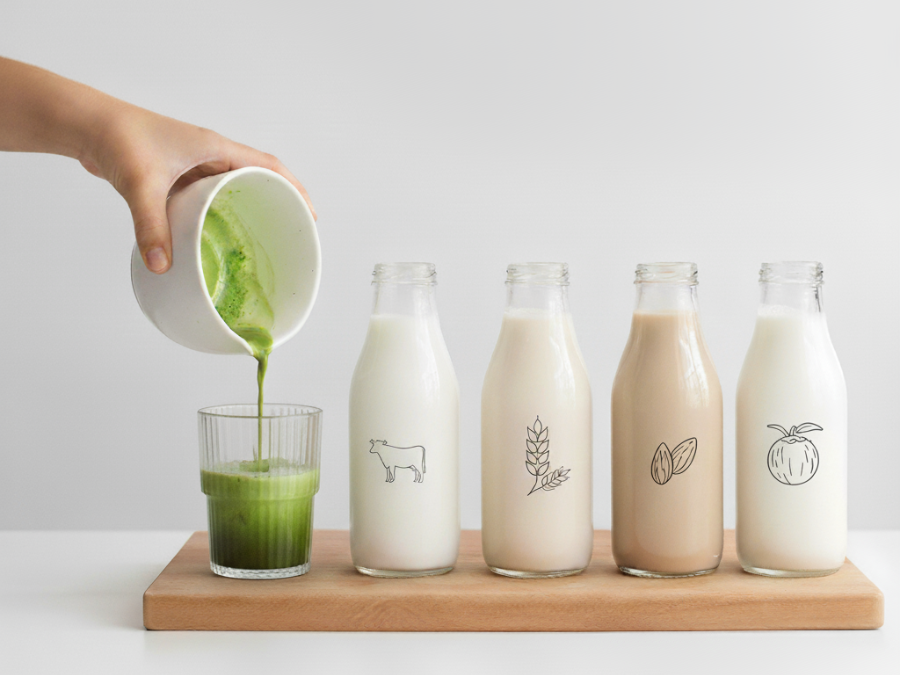
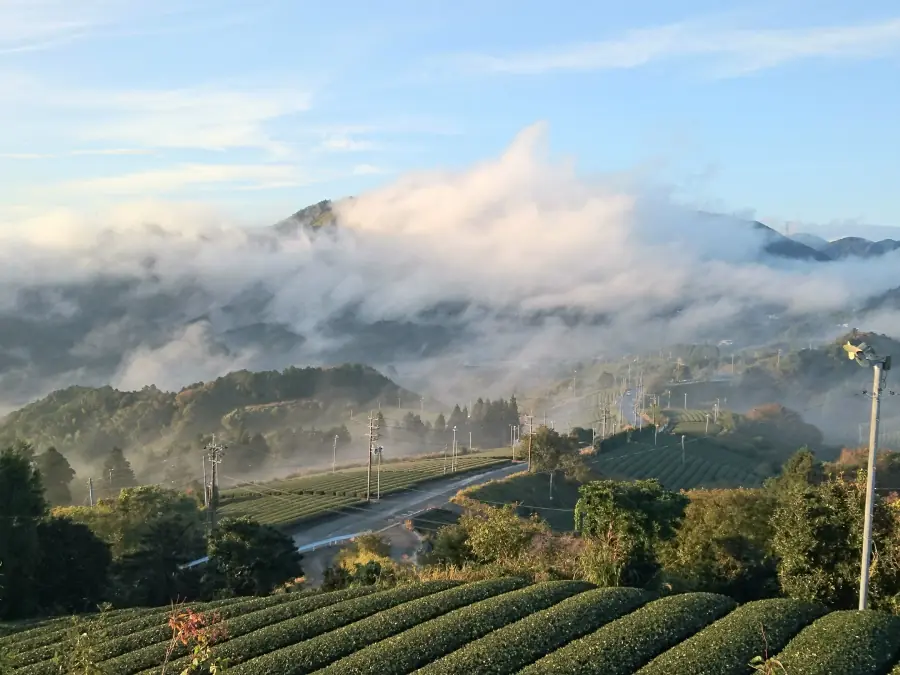
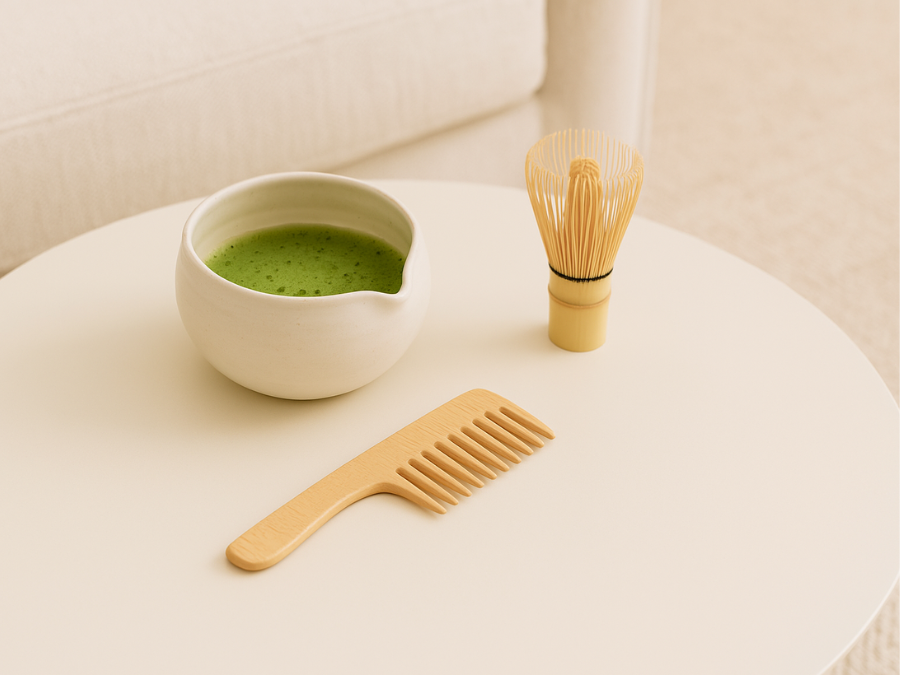
2 Comments
Michele
Hey ihr Lieben,
würde gerne bestellen, aber ich lebe in Kroatien.
Kann man da irgendwas organisieren?
lG Michèle
Hey ihr Lieben,
würde gerne bestellen, aber ich lebe in Kroatien.
Kann man da irgendwas organisieren?
lG Michèle
Werner Sommer
ich freu mich
ich freu mich